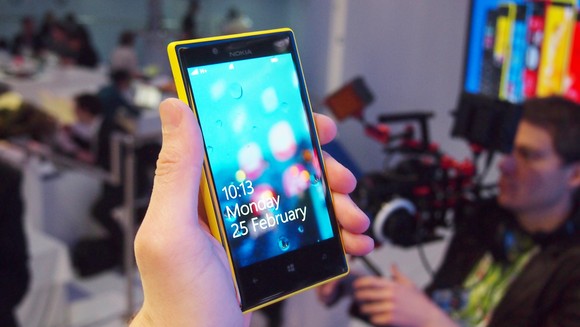Nokia warns not to expect a QWERTY Lumia anytime soon
But you wanted QWERTY, right?

Sign up for breaking news, reviews, opinion, top tech deals, and more.
You are now subscribed
Your newsletter sign-up was successful
At this week's MWC, Nokia revealed it doesn't have plans to mix up its line of Windows Phone 8 Lumia handsets by adding a physical QWERTY keyboard to future models.
Jo Harlow, Nokia's executive vice president of smart devices, said that the company is cautious about QWERTY smartphones for fear of being left behind in the smartphone rat race.
"It's really a question, [of] 'Is there a large enough audience out there?' or 'Are the people who have QWERTY today intending to move in this direction?' and we really don't want to be on the wrong side of that movement," Harlow told SlashGear.
The company announced the new Lumia 520 and Lumia 720 handsets at Mobile World Congress, showing a clear attempt to appeal to as wide an audience as possible, a business plan that doesn't leave much room for a perceived niche like physical keyboards.
QWERTY in decline
Harlow admitted that Nokia still evaluates QWERTY-equipped options, saying, "We do get the request a lot, and it's funny that there are a lot of people that absolutely want to use a physical keyboard. They like the security of that."
Despite the demand, QWERTY smartphone sales trailed off a long time ago. BlackBerry, which has always been known for its QWERTY devices, opted to headline the launch of BlackBerry 10 with the touch-based Z10.
The BlackBerry Q10 and its physical keyboard will arrive in April, but when BlackBerry doesn't even lead with a button-based keyboard, it's not a strong endorsement for QWERTY's future in handset design.
Sign up for breaking news, reviews, opinion, top tech deals, and more.
Harlow seems to agree adding, "One of the things that we see is that the number of people who are using, or are interested in using, a QWERTY continues to decline."
While there are still holdouts among the smartphone audience craving a full QWERTY keyboard, as far as Nokia and many other manufacturers are concerned, pure touch interfaces are here to stay.